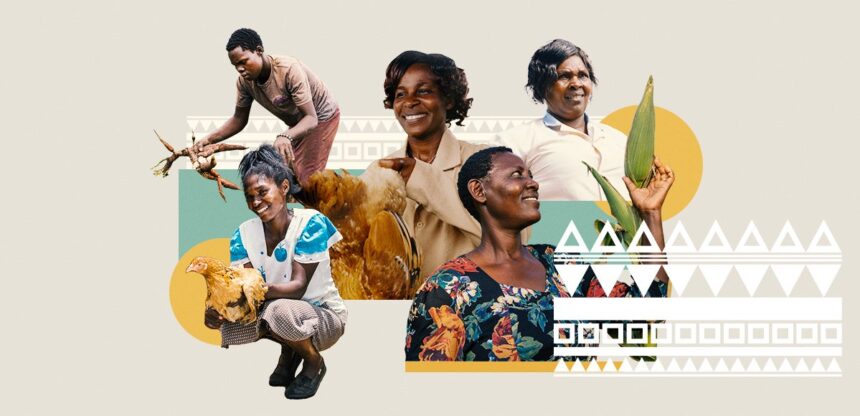Globally, approximately one-third of all food produced ends up lost or wasted. In Kenya, this figure ranges from 20% to 40%. Unlike in more developed nations, where food waste is the predominant issue, Kenya faces significant food loss challenges, particularly among its small-scale farmers.
These farmers, who contribute 75% of the nation’s agricultural output, encounter obstacles such as poor market connections and the inability to meet strict cosmetic standards for their produce.
To address this challenge, a wave of innovative startups is emerging, aiming to close the market gap for farmers. One such example is Farm to Feed, an agri-tech startup based in Kenya, rapidly gaining traction in the sector.
The idea focuses on aggregating farm products, including imperfect crops that fail to meet conventional market criteria due to their size, shape, or appearance. Through various sales channels, including an online marketplace, Farm to Feed sells these products to businesses such as restaurants and food processors.
Founded in 2021 by Claire Van Enk, Anouk Boertien, and Zara Benosa, Farm to Feed originated from a non-profit organization providing food to individuals affected by the Covid lockdown. Acknowledging the abundance of food resources alongside the challenge of restricted market entry, the founders shifted their focus towards a commercial remedy.
Van Enk emphasizes the broader impact of food loss and waste, including its contribution to climate change through methane emissions from rotting produce. Thus, Farm to Feed was established to tackle this issue on a larger scale.
The startup employs aggregators to collect produce from both small and large-scale farmers across key farming regions in Kenya. After sorting and grading, the products are dispatched to clients from the company’s warehouse in Nairobi.
Thanks to funding from various sources, including the IFC Tech-Emerge program, Farm to Feed is expanding its operations, with plans to acquire trucks equipped with sustainable cooling solutions. The startup has raised $1 million in equity and grant funding from several investors and institutions.
In addition to traditional sales channels, Farm to Feed is exploring innovative avenues such as social commerce through platforms like WhatsApp. Other startups, such as Ghanaian agtech Farmerline and Complete Farmer, are also working to connect farmers with markets and quality inputs, reflecting a broader trend of innovation in the agricultural sector across sub-Saharan Africa.
Recognizing the potential for data-driven solutions, Farm to Feed is developing a data platform to collect granular data on climate and factors contributing to food loss. This information will inform strategies to improve farming practices and create a more circular food system.
The startup is also exploring value-addition opportunities and investigating participation in the carbon market to further incentivize food loss reduction efforts.














